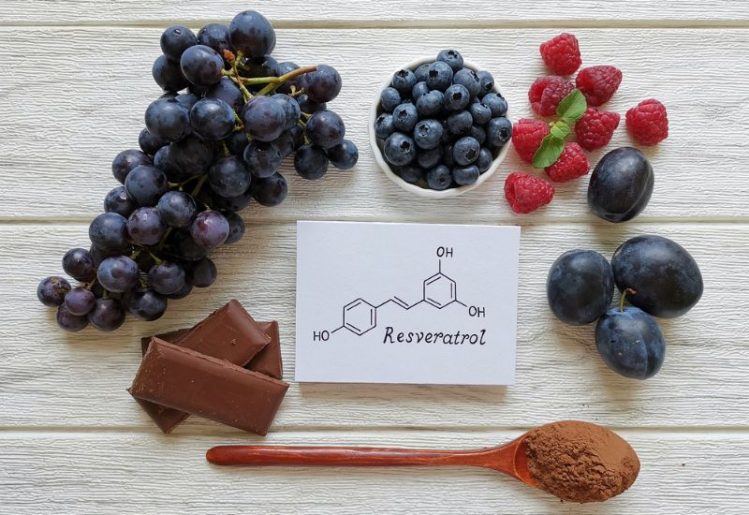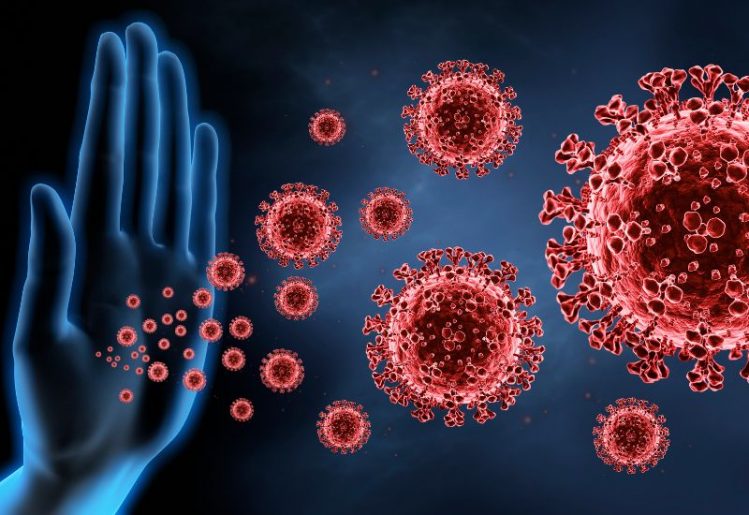New Research on Resveratrol and COVID-19 Uncovers Numerous Benefits
As more is learned about how to combat the spread of COVID-19 and different ways to treat the virus, researchers are discovering that certain nutrients and plant compounds may be key. Sufficient intake of the antioxidant resveratrol is showing promise in mitigating the reproduction of the virus as well as helping to treat disorders related to the virus. Here is what you need to know about resveratrol and COVID-19 and how to boost your intake.
What is Resveratrol?
 Resveratrol is a type of phytoalexin that serves as a protective antioxidant. The compound is produced by plants when they are under stress, such as when suffering from inflammation, a fungal attack, lack of moisture or harmful ultraviolet irritation. Resveratrol works in plants by helping them to fight against these stressful agents so that they can thrive.
Resveratrol is a type of phytoalexin that serves as a protective antioxidant. The compound is produced by plants when they are under stress, such as when suffering from inflammation, a fungal attack, lack of moisture or harmful ultraviolet irritation. Resveratrol works in plants by helping them to fight against these stressful agents so that they can thrive.
When consumed by humans, it provides all of the benefits of a typical antioxidant. This means that it works as an anti-inflammatory, boosts heart health and may even cut the risk of developing some types of cancer. In addition, resveratrol has been shown to reduce the risk of developing Alzheimer's disease by blocking the formation of plaque in the brain.
Resveratrol can also support healthy insulin sensitivity, fighting back against diabetes. Other benefits potentially provided by resveratrol include helping to protect against obesity and chronic inflammation.
How Resveratrol and COVID-19 are Linked
For over the last two years, scientists have been racing to figure out ways to both prevent the spread of COVID-19 while also treating those patients infected with the sometimes-deadly virus. During the early stages of the pandemic, medical researchers began zeroing in on resveratrol as a potential antiviral treatment.
A study out of the Shenzhen Third People's Hospital in China showed that resveratrol could potentially inhibit the replication of COVID-19 while also working as a possible therapeutic treatment to aid those already infected with the virus. Scientists hypothesize that the natural antioxidant properties of resveratrol work to combat inflammation and oxidative stress. Both of these issues are some of the most common negative consequences of viral infections such as COVID-19.
Another study demonstrated that resveratrol may aid in lowering the mortality rates typically associated with COVID-19 because of its anti-thrombotic properties. Serious COVID-19 often takes root when the body experiences a cytokine storm, otherwise known as a severe immune reaction to the virus. This cytokine storm can seriously damage the body's tissues and organs. Because of the anti-thrombotic and anti-inflammatory properties of resveratrol, this type of severe reaction could be lowered in patients infected with the virus.
When it comes to treating COVID-19, what works well for one patient may not be as effective on somebody else. This is why medical researchers are continually searching for new treatments and preventative techniques. Resveratrol is yet another tool in the arsenal of ways to fight back against the virus and the damage that it causes to the body.
How to Boost Your Intake of Resveratrol
Now that you understand all of the benefits of resveratrol, particularly in a world where COVID-19 is still a major health threat, you are probably wondering how you can boost your intake of this compound. The most common place to find resveratrol is in red wine. This is because the skins of all red grapes are rich in this compound. The highest concentration of resveratrol is found in the thick-skinned grapes used to produce Malbec wines.
You can also find resveratrol in the stems, leaves and seeds of the grape vines used to make wine. Wine is such a potent source of resveratrol simply because the grapes are not processed through pasteurization or boiling, like they are in a non-alcoholic grape juice or products such as jellies and jams.
 Because many people do not want to lean on drinking an alcoholic beverage for health benefits, they may look to other sources of the compound. Good food sources of resveratrol include peanuts, pistachios, blueberries, cranberries, mulberries, red currants, raspberries and cacao beans.
Because many people do not want to lean on drinking an alcoholic beverage for health benefits, they may look to other sources of the compound. Good food sources of resveratrol include peanuts, pistachios, blueberries, cranberries, mulberries, red currants, raspberries and cacao beans.
Lastly, you will find resveratrol in a number of natural supplements. A dedicated supplement such as Resverchron includes resveratrol as well as a variety of vitamins and minerals. Together, this unique combination helps to guard against oxidative stress, support a healthy nervous system, boost cardiovascular health and maintain optimal cellular inflammatory processes. If you are worried that you are not getting enough resveratrol in your diet alone, the use of this supplement will put your mind at ease with its extra layer of protection.
As the ongoing pandemic has taught us, taking care of your overall health through the right diet and proper supplementation can be one of the most powerful tools in both fostering a strong immune system and promoting the best possible outcomes if the virus is contracted.





